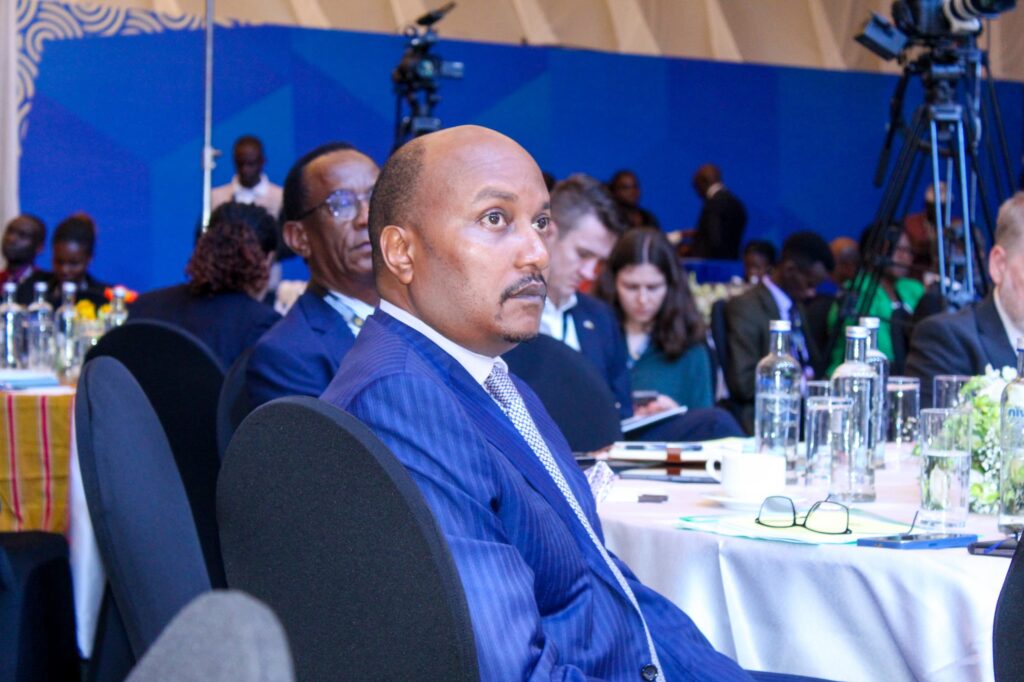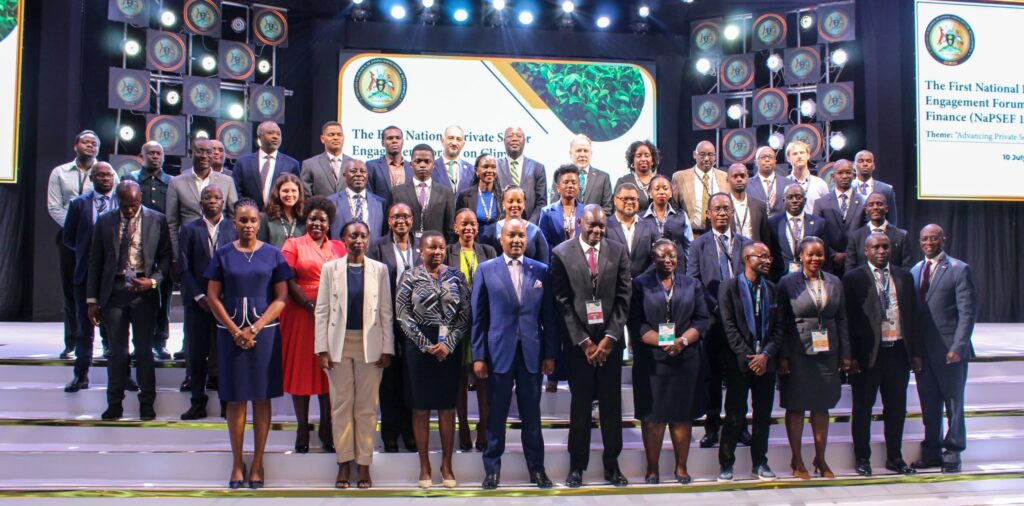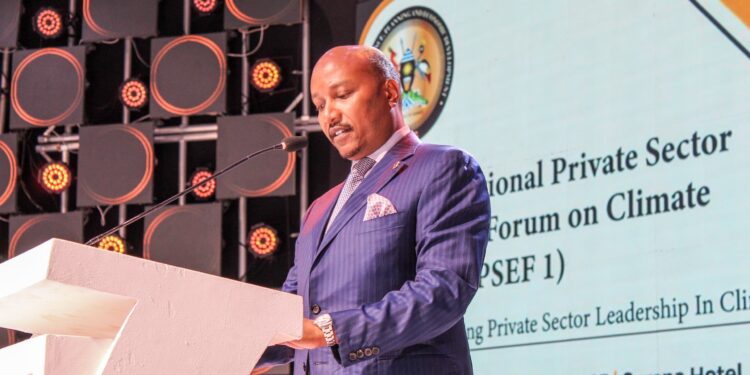Humphrey Nzeyi, Chairman of the Board of the Private Sector Foundation Uganda (PSFU), has reaffirmed the organization’s dedication to sustainability as a cornerstone of Uganda’s economic future.
“We are committed to fostering a green economy that balances profitability with environmental and social responsibility,” he stated.
Nzeyi highlighted PSFU’s ongoing initiatives, such as the ERT and PAYGO clean energy programs, which demonstrate this commitment. These efforts aim to reach 100,000 households by 2030, underscoring PSFU’s vision for a sustainable future.
He added that PSFU is integrating sustainability into its advocacy against illicit trade, as counterfeit goods and unregulated markets undermine legitimate businesses investing in eco-friendly practices.
Nzeyi noted that by promoting formalized, transparent markets, “we aim to protect sustainable enterprises and enhance economic resilience.”
He noted that the private sector is at the forefront of Uganda’s climate change strategy, contributing significantly through innovation, investment, and advocacy.
Nzeyi made the remarks at the Inaugural National Private Sector Engagement Forum on Climate Finance (NaPSEF1), held at the Kampala Serena hotel.
He explained that as Uganda strives to achieve its climate goal of reducing greenhouse gas (GHG) emissions by 24.7% by 2030, the private sector stands as a pivotal partner in driving sustainable economic transformation.
He commended government on the FY 2024/25 budget’s allocation of Shs 892.6 billion for energy and Shs 4.999 trillion for infrastructure, calling for continued investment in rural infrastructure and streamlined policies to support clean energy and sustainable businesses, particularly in underserved regions where PSFU operates.
“We look forward to deepening collaborations to scale climate programs, enhance MSME resilience, and drive innovation in green technologies,” he said.

He asked the Private Sector to seize this opportunity to lead in climate action, saying, “By investing in sustainable practices and embracing clean energy, we can create jobs, expand markets, and contribute to Uganda’s vision for a low-carbon, prosperous future.”
He reiterated PSFU’s commitment to partnering with all stakeholders in order to achieve the world’s climate ambitions.
“Through our clean energy programs, advocacy for sustainable policies, and fight against illicit trade, we aim to build a resilient, inclusive, and green economy. Together, let us harness climate finance to transform Uganda into a beacon of sustainable development,” he said.
The Inaugural National Private Sector Engagement Forum on Climate Finance (NaPSEF1) Forum

The forum aims to enhance private sector participation in Uganda’s climate finance ecosystem by addressing key objectives and interests.
The forum also seeks to foster dialogue and collaboration among private sector actors, government, development partners and financial institutions to unlock investment opportunities in areas such as carbon markets, green bonds, climate-smart infrastructure, and public-private partnerships.
“It aims to clarify access to funding instruments, promote innovative financing solutions, and build capacity for developing bankable, inclusive, and gender-responsive green projects. By aligning private capital with Uganda’s Nationally Determined Contributions (NDCs) and reducing barriers like information asymmetry and high capital costs, the forum supports the private sector’s interest in driving innovation, scaling sustainable business models, and contributing to Uganda’s goal of reducing GHG emissions by 24.7% by 2030,” Nzeyi said.











